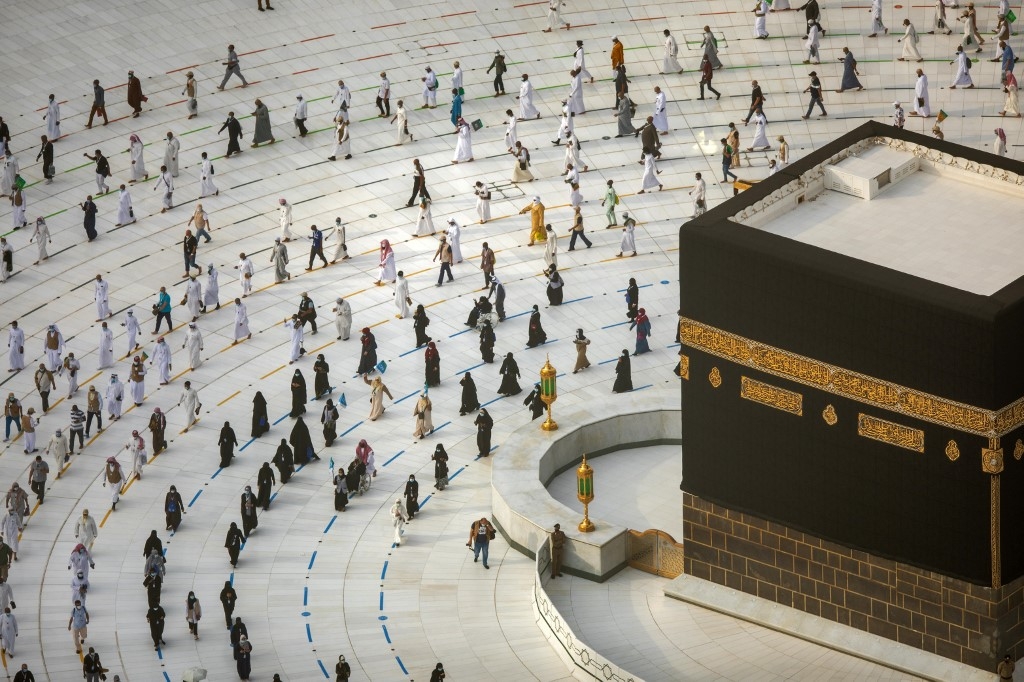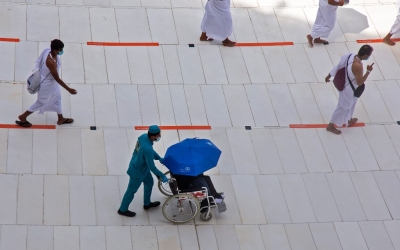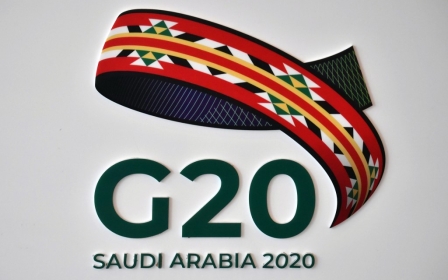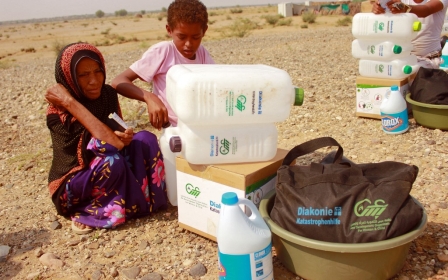Saudi Arabia to begin allowing Umrah for citizens and residents

Saudi Arabia announced on Tuesday that it will allow citizens and residents residing inside the kingdom to perform the Umrah, an Islamic pilgrimage to Mecca and Medina undertaken any time of the year, starting on 4 October.
State news agency SPA said authorities will allow citizens and residents to perform Umrah at a 30 percent capacity, equivalent to 6,000 pilgrims a day, to take into account sanitary precautionary measures.
During its second phase, which will begin on 18 October, the country will increase the capacity to 75 percent, or 15,000 pilgrims a day.
Saudi Arabia will also begin allowing visitors from outside the kingdom to perform Umrah beginning on 1 November, as a part of its third phase of reopening, where the capacity will increase again to 100 percent - 20,000 pilgrims a day. But it is contingent on whether Covid-19 still poses a threat in the country.
The kingdom initially imposed a blanket ban on the Umrah pilgrimages to the holy cities of Mecca and Medina in March due to the coronavirus pandemic.
The country has recorded more than 330,000 cases of the novel virus, including more than 4,500 deaths.
Despite banning Umrah, Riyadh maintained the annual Hajj pilgrimage but only allowed around 1,000 pilgrims residing in the kingdom to perform it, due to concerns over the spread of the virus.
While Hajj is a mandatory pilgrimage, taken at a specific time of the year, to all Muslims that are physically and financially able to make the journey, Umrah can be undertaken at any time of the year and is not considered compulsory.
The kingdom, which hosts the two holiest sites of Islam, welcomes millions of Muslim visitors throughout the year with a peak for the Hajj pilgrimage.
Nearly seven million people visit Mecca annually to perform Umrah. Prior to visiting Saudi Arabia, pilgrims are required to provide certificates for vaccinations in their visa applications.
Middle East Eye delivers independent and unrivalled coverage and analysis of the Middle East, North Africa and beyond. To learn more about republishing this content and the associated fees, please fill out this form. More about MEE can be found here.





